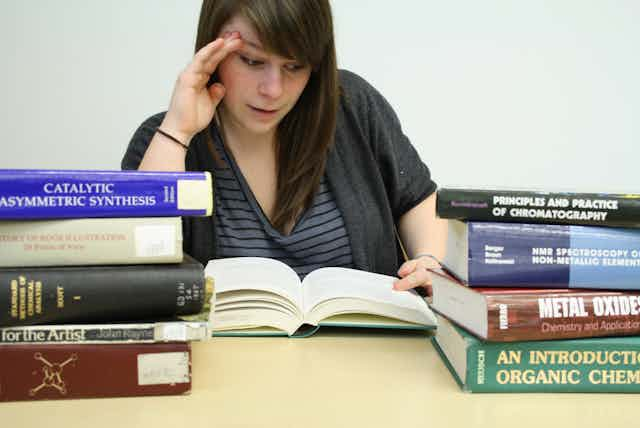Recent media reports have indicated growing numbers of students require special examination considerations for coursework and exams.
In Victoria, there was a 42% increase in applications for special considerations since 2009. In New South Wales, there were 5261 applications from the almost 70,000 students who undertook the HSC, an increase from previous years. Media reports reveal a progressive jump in student numbers applying for special examination arrangements in various states.
Among these are an increasing number of students who experience debilitating anxiety, preventing them from giving their best under test and exam conditions. The majority of these applications are lodged under the category “Severe Health Impairment”. This number includes those students who experience heightened anxiety during tests and examinations.
Only 10% of students applied under the category “Learning Disabilities”. Students with learning disabilities are difficult to diagnose, as learning difficulties may sometimes be linked to maturation. Developmental delays are likely to lead to other social and emotional difficulties. As a consequence, fewer students who may in principle require more equitable examination arrangements actually qualify under this category.
The application requires the disclosure of the student’s IQ, which may not necessarily link to a learning disability. Learning disabilities and intellectual impairments are not the same thing, and not necessarily related.

A review of special examination and coursework policies is currently being conducted, in an attempt to create a more equitable system for all students.
The rising number of applications for special considerations does indicate that many students experience significant psychological difficulty undertaking examinations. The process appears to exacerbate stress and anxiety, preventing students from successfully responding to questions in this high-pressure environment.
To counteract this, many have preferred to apply for “safety nets” such as extra writing or reading time, the use of different coloured paper, alternative question formats and computer use instead of handwriting, in order to provide support to help overcome these difficulties.
More consideration for private schools
An interesting factor is that more students successfully apply for special considerations from private schools than state schools, even though there are significantly more students with learning difficulties in state schools. Students with additional learning needs in Victoria number almost 13,000 in state schools, and just over 3,000 in independent schools.
Numbers from the Victorian Curriculum and Assessment Authority show that last year 227 successful applications were made by private schools and just 129 applications from state schools. In NSW, more than 52% of the applications are received from non-government schools.

It is often the case that private and independent schools have dedicated personnel to process applications for special consideration, with both parents and students having ready access to information very early on.
State schools may not necessarily have this provision, nor the funds required to process the psychological and clinical testing required.
Increases in mental illness and recognising it
Another factor that may have contributed to the sharp increase in special consideration applications is that medical personnel are now better equipped to identify symptoms associated with anxiety-related and depressive conditions.
In recent years, there have been advances in the early detection and management of depression and stress-related disorders. In a current review, the Australian Psychological Society acknowledged that depression will account for the highest level of disability by 2030.
This increase in anxiety and stress disorders appears to persist long after schooling as many students at universities and those in the workplace report stress and anxiety. A report by the Australian Psychological Society revealed that young Australians (18-25 years of age) reported lowered levels of wellbeing and higher degrees of stress and distress.
The report also revealed that young Australians reported increased depressive and anxiety-related symptoms. Among these, Australian students in the 18-25 year category reported heightened anxiety and stress.
Evidently, the pressures of modern life intensify anxiety, adding to the already heavy psychological load being carried by students. The pressure to conform and perform according to the standards and expectations of modern society are not just limited to classrooms, but permeate life outside school as well.
Consequently, the sharp increase in applications for special examination arrangements and special considerations in recent years does reveal a slightly worrying trend in both schools and society. Applications for such concessions are mostly legitimate and may be reflective of wider issues impacting on our world at large.

